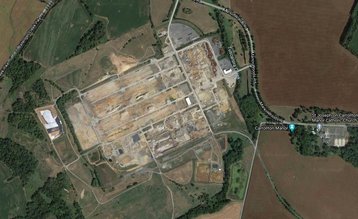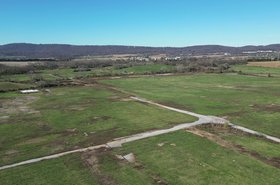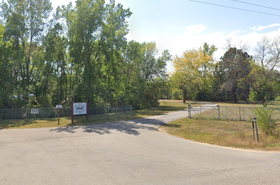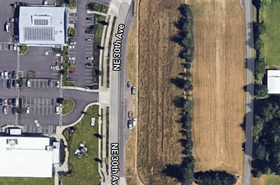Asset manager TPG is seeking a court order to remove data center company Quantum Loophole from its role as manager of a $5 billion campus planned near Frederick, Maryland.
Court papers were filed in Delaware's Court of Chancery on Thursday by TPG RE III Volt Holdings LP, an affiliate of TPG, requesting an order that would remove Quantum Loophole from its development role in the project. It would be replaced by TPG affiliate Catellus Development Corporation.
First announced by TPG and Quantum Loophole in 2021, the Frederick campus could have a capacity of up to 2GW, but it has become mired in delays and controversy.
The proposed court order would remove Quantum Loophole from the project and compel it to reasonably cooperate in transferring control of the scheme and authority over its bank accounts to TPG affiliates.
For its part, TPG would be required to get Quantum Loophole’s permission before making financial decisions about the project, particularly where any single transaction exceeds a value of $100,000.
TPG is seeking a fast-tracked declaratory judgment in the case. It had not provided a comment to DCD at the time of publication. Quantum Loophole declined to comment on the court case.
The 2,100-acre campus site is centered around the former Alcoa Eastalco Works aluminum smelting plant in Frederick, and would also take in a large amount of agricultural land.
When publicly launched in 2022, Quantum Loophole, a wholesale developer of hyperscale data center campuses, said it planned to install a fiber loop linking the campus to nearby Ashburn, Virginia, the world’s busiest data center market.
But since then community and environmental concerns have delayed work on the project. In April, construction ground to a halt when the Maryland Department of Environment raised concerns that drilling to lay fiber cables had released clay into Frederick’s water supply.
This followed a similar incident in 2023 when work was paused due to "numerous environmental violations."
Quantum Loophole had previously lost its first tenant for the site, Aligned Data Centers, which had been planning to take 264MW of capacity at the campus but decided against it because Maryland state rules would have limited the number of diesel backup generators it could install.
Maryland has since amended its regulations around backup generators, easing restrictions for data center firms, but Frederick's lawmakers have introduced two new bills that, if adopted, would put stricter controls on where new projects can be located in the county.
In May, Quantum Loophole said it had sold a 150-acre plot on the site, but did not name the client or the terms of the deal.








